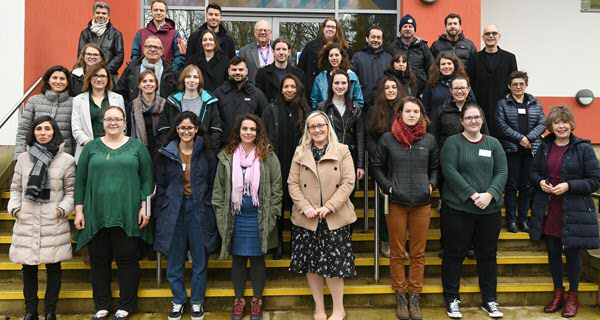Successful Launch Event for the International Network SeaChanges
Forty eight researchers from across the SeaChanges network gathered in York for the launch event of the programme from Tuesday 6 to Saturday 10 January 2020, which was a huge success. Attendees included the PhD students and supervisors from the various institutions and representatives from some of our wide network of partner organisations. The event included a kick-off meeting to introduce the programme and meet the other attendees, followed by a three-day workshop for the students covering bioarchaeological methodologies. Inspirational keynotes from leading researchers in the fields of history, archeology, and marine conservation biology, Poul Holm, Naomi Sykes, and Callum Roberts provided an insight into the current landscape for the network’s research. Over the next three years, six further workshops will be run across the seven institutions providing training on marine ecology, data handling, outreach, and archeological sampling.

SeaChanges is an international doctoral training network funded by the European Union’s Horizon 2020 research and innovation programme under the Marie Skłodowska-Curie actions (MSCA), spanning archaeology and marine biology and supporting 15 fully-funded PhD projects across seven institutions in six countries. The network takes a long-term perspective on human exploitation of marine vertebrates, with projects covering species from herring to sperm whale, timescales from decades to millennia, and all of Europe's seas and beyond.
SeaChanges brings together experts from seven leading institutions in archaeology, zoology, marine ecology and conservation biology, led by the University of York in partnership with the University of Groningen, University of Cambridge, University of Oslo, University of Copenhagen, University of Bologna, and CSIC - IMM. It will provide state-of-the-art training to forge a new generation of interdisciplinary researchers able to operate at the interface of archaeology and marine biology, with the skills required to fully realise the potential of archaeological remains to understand past marine resource use, assess past impacts, and use these to inform the present.
| Last modified: | 07 August 2020 09.15 a.m. |
More news
-
01 July 2025
Khalaf Alkhalaf elected Alumnus of the Year 2025
Khalaf Alkhalaf has been elected Alumnus of the Year 2025 by the University of Groningen. He has received the award for his commitment to providing good care and guidance to refugees in the Netherlands and the inspiring way in which he shares his...
-
24 June 2025
Lizayra Dassen wins the 2025 Gerrit Krol Award
The fourth edition of the Gerrit Krol Award was awarded to Lizayra Dassen for her essay titled Een uitdagende onwetendheid (A challenging ignorance). The jury described her essay as ‘convincing’ and ‘well thought-out’.
-
13 May 2025
European security: opportunity and threat to democracy
How strong is our democracy? This will be determined by what is currently happening on the world stage, argues Pieter de Wilde, Professor of European Politics & Society at the University of Groningen.
